QSR Magazine | March 2016 | By Jessie Szalay
Whether retiring or moving on to new pursuits, the day will come when it’s time to sell your business. Here’s what you need to know.
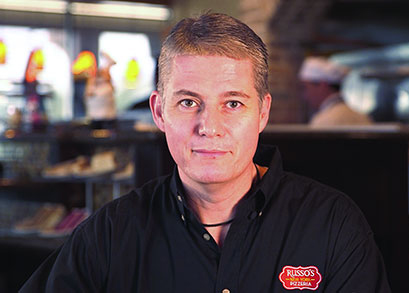 Guillermo Medellin has owned his three Russo’s New York Pizzeria stores in Houston for six years and business is going well; Medellin and his team turn out pizza to a steady stream of customers every day.
Guillermo Medellin has owned his three Russo’s New York Pizzeria stores in Houston for six years and business is going well; Medellin and his team turn out pizza to a steady stream of customers every day.
But he’s already preparing for the faraway day when he decides to sell his business.
Medellin wants to make sure he’ll profit from the sale as much as possible, that the process will be smooth, and that he’ll leave well-running, community-oriented restaurants behind. To do that, he’s keeping meticulous records, working hard to build equity, foraging strong community bonds, and ensuring all his titles and leases are transferable.
Medellin’s commitment to thinking ahead comes from first-hand experience in buying and selling businesses. He previously owned manufacturing plants and another restaurant. His family members were fans of Russo’s food but didn’t like the service at a particular location, so when it went up for sale, they decided to buy it. Things went well, and they acquired two more restaurants. “We’re not considering selling right now; we’re just building equity in our business,” Medellin says. “It’s always on our mind, because at one point or another, we’re going to be in a situation to sell it.”
He keeps thorough records on how money comes in and where it goes. He tracks phone records; personal, discretionary, and essential business purchases; tax returns; and lease agreements.
“You want to do everything in your power to get that business running as well and as profitably as possible to make it attractive to a buyer,” says Bob House, general manager of BizBuySell, an online marketplace for business buyers, sellers, and brokers. Business owners should consider improving the curb appeal of their restaurant, making renovations, working with a PR firm, and doing what they can to improve reputation, as these things can improve the selling price.
Maintaining good records should be a key component in every business owner’s long-term exit strategy. In fact, Russ Bieber, vice president of sales and training at broker Murphy Business & Financial, says detailed bookkeeping is so important that if a seller comes to him with messy records, he will advise maintaining the business for another year to get things in order.
When someone comes to Murphy Business looking to sell, a broker analyzes the business’s financial statements, as well as sales information for similar businesses, to come up with a likely price range. When financial statements are incorrect, the estimated selling price becomes incorrect, as well.
“It’s like when you’re taking the test: If you have the answer in your head but you don’t write it down on the paper, you’re not going to get credit for it,” Bieber says.
Some restaurant owners undervalue their business because they don’t count all the cash flow or they deduct personal expenses. Others overvalue their business because of the amount they’ve put into it.
When it comes time to sell, restaurant owners have to decide whether to use a broker. The process of marketing and selling a business is long, complicated, and daunting, and a broker acts as a guide and advocate through it. House, whose business BizBuySell hosts some 40,000 active listings, says a broker allows the operator to run the business while someone else focuses on selling it.
Brokers also bring marketing strategies and networks of buyers. Steve Zimmerman is president, CEO, and principal broker of the California-based Restaurant Realty Company, as well as author of the book Restaurant Dealmaker. In addition to the expertise that comes with dealing exclusively in restaurants and nightclubs, Restaurant Realty Company boasts a database of potential buyers with whom Zimmerman keeps in regular contact through weekly and quarterly newsletters. These kinds of networks help brokers find the right match of buyer and seller.
For any type of restaurant, the prospective buyer’s financial viability is the most important factor in making that match. Experience is equally key when it comes to buying independent restaurants.
“Landlords are skeptical of dealing with newbies,” says Zimmerman, whose firm only deals with independent restaurants and nightclubs. “[Buyers] must have cash, good credit, … three to five years ownership or management experience, and food finance experience. Dealing with the landlord is the biggest hurdle, so we screen buyers from the perspective of a landlord.”
Other factors that go into a good buyer-seller match include the buyer’s location preferences and personal financial needs.
Zimmerman, House, and Bieber all advertise listings confidentially, meaning that the name and address of the business and its owner are not advertised. Bieber says that if customers know the restaurant is for sale, they may not come by anymore because they think the owner’s given up, and employees sometimes quit and find new jobs.
Secrecy often permeates the entire process. For example, Zimmerman’s brokerage firm requires each potential buyer to fill out a confidentiality agreement and undergo screening before being given the business name and address. Then, the potential buyer is instructed to go the business as a customer during a busy period. Next, the broker will set up a time to meet with the owner. Zimmerman emphasizes that all meetings take place discreetly, in out-of-the-way locations.
Buyers don’t see the books and records until an offer has been made. The broker writes an offer, which the seller accepts, rejects, or counters. The agreement includes some contingencies, like transfer of licenses, inspections, approvals of landlord, and financial review of books and letters, Zimmerman says. In business, it’s common for a broker to represent both buyer and seller.
“Dual agency exists because there aren’t a lot of restaurant brokers,” Zimmerman says. “When you get a residential broker or someone who doesn’t have restaurant business brokerage experience, it adds complications and time. Time and surprises are the biggest things that kill deals.”
Once the sale is final, the seller trains the buyer in running the business. Training usually lasts a month or two, Bieber says, and is done in both independent and franchise restaurants.
After that, someone like Medellin will walk away from the restaurants he nurtured and move on to his or her next adventure.

 Dan Bauer was in the car wash industry for 12 years. When he worked with a broker to sell his businesses, he found his passion. He made the shift to being a business broker 18 years ago, spending 14 years with a downtown brokerage before becoming Managing Partner of Murphy Business of Minnesota.
Dan Bauer was in the car wash industry for 12 years. When he worked with a broker to sell his businesses, he found his passion. He made the shift to being a business broker 18 years ago, spending 14 years with a downtown brokerage before becoming Managing Partner of Murphy Business of Minnesota.
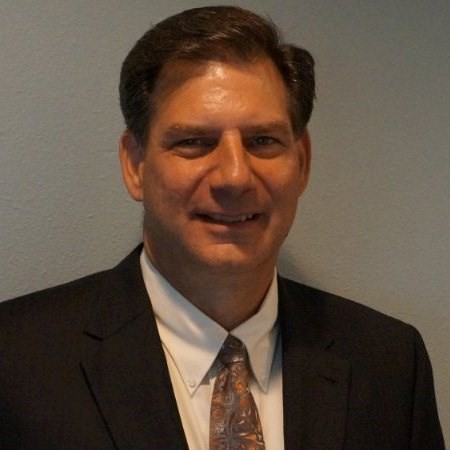
 Guillermo Medellin has owned his three Russo’s New York Pizzeria stores in Houston for six years and business is going well; Medellin and his team turn out pizza to a steady stream of customers every day.
Guillermo Medellin has owned his three Russo’s New York Pizzeria stores in Houston for six years and business is going well; Medellin and his team turn out pizza to a steady stream of customers every day.
 Plummeting sales. PR disasters. Piling debts. Lawsuits. Layoffs. These are just a few of the many potential tough situations an entrepreneur might face — and that's just on the business side. Illness, family deaths, relationship issues and other personal problems can weigh heavily on a business owner's mind and make it really difficult to carry on with day-to-day operations.
Plummeting sales. PR disasters. Piling debts. Lawsuits. Layoffs. These are just a few of the many potential tough situations an entrepreneur might face — and that's just on the business side. Illness, family deaths, relationship issues and other personal problems can weigh heavily on a business owner's mind and make it really difficult to carry on with day-to-day operations.
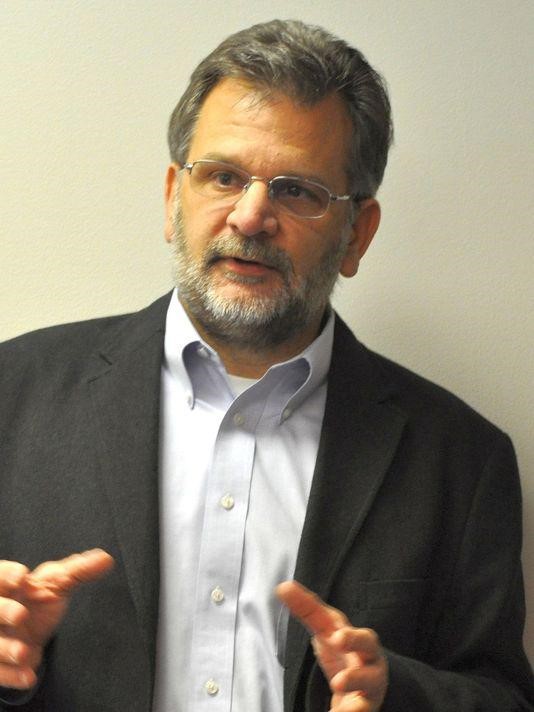

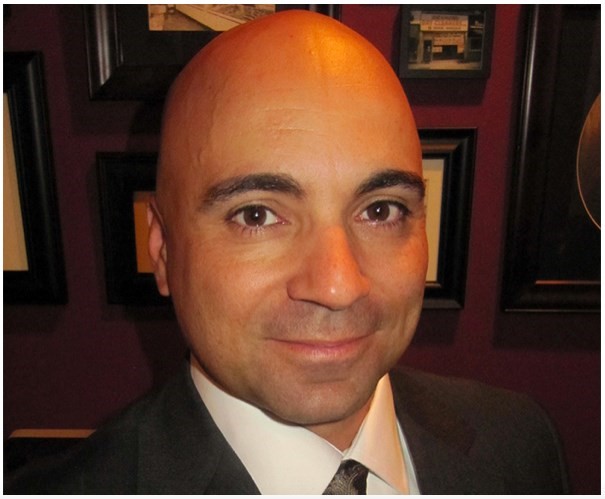 Name: Joe Chiarello
Name: Joe Chiarello
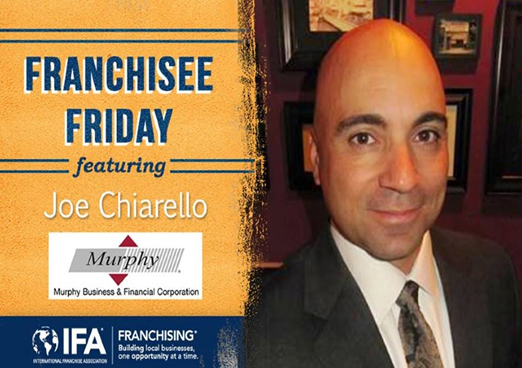 FRANCHISEE FEATURE: JOE CHIARELLO
FRANCHISEE FEATURE: JOE CHIARELLO